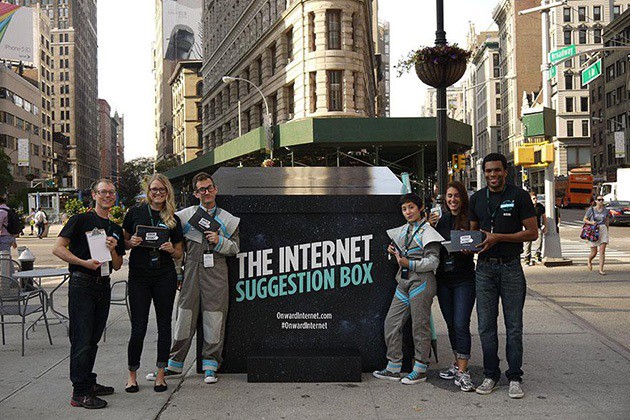 With millions at stake charging content producers extra for guaranteed fast lanes on the Internet, some lobbyists will go to almost any length to throw up roadblocks in opposition to Net Neutrality.
With millions at stake charging content producers extra for guaranteed fast lanes on the Internet, some lobbyists will go to almost any length to throw up roadblocks in opposition to Net Neutrality.
The sudden appearance of Onward Internet, a group that erects enormous “Internet suggestion boxes” at busy intersections in New York and San Francisco is a case in point.
At least a half-dozen 20-somethings, some dressed for a science fiction convention, staff the displays while encouraging people to write and toss in their own ideas about what they expect from the Internet over the next decade.
A higher bill and usage caps, unsurprisingly, were not among the suggestions. But it is doubtful the mysterious people behind Onward Internet are interested in hearing that.
Advocacy group ProPublica spent weeks trying to find who was paying for the youthful exuberance, giant black boxes, and hopelessly optimistic YouTube videos telling viewers the Internet was made to move data, and how amazing it was your Internet Service Providers valiantly kept up with the demand, helped connect industries and even topple dictatorships. Well, not corporate dictatorships in this country anyway.
With that kind of “feel good” message, ProPublica undoubtedly smelled industry money, especially after seeing lines like, “The Internet is a wild, free thing; unbounded by limits, unfettered by rules, it’s everyone’s responsibility to ensure that the Internet continues to advance.” But it took a leak from a worker hired to file permits and buy space in San Francisco for the street displays to finally blow the whistle.
Onward Internet = the National Cable and Telecommunications Association, America’s largest cable industry lobbyist.
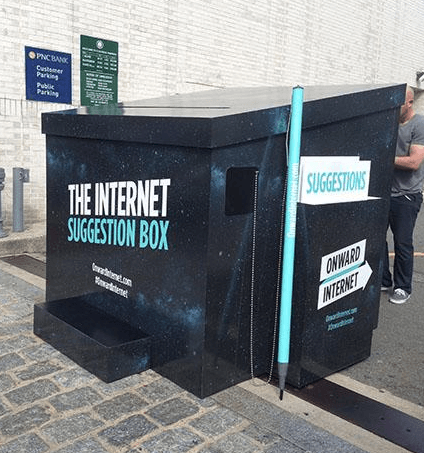
This appears to be a repurposed dumpster.
You couldn’t find a bigger critic of Net Neutrality if you tried.
The NCTA played coy with ProPublica when the group first confronted the cable lobby with the evidence.
“What led you to the conclusion that this is an NCTA effort,” asked NCTA spokesman Brian Dietz.
Busted, Dietz followed up with a statement suggesting the NCTA needed to keep its involvement top-secret because it might ‘bias’ the feedback they received:
“We’ve kept NCTA’s brand off Onward Internet because we want to collect unbiased feedback directly from individuals about what they want for the future of the Internet and how it can become even better than it is today,” Dietz told ProPublica. “The cable industry is proud of our role as a leading Internet provider in the U.S. but we feel it’s important to hear directly from consumers about how they envision the future so we can work hard on delivering it.”
“We had always intended to put the NCTA brand on it but we wanted to collect as much unbiased feedback as we could for a few weeks before putting our name on it,” Dietz later told VentureBeat.
The NCTA is hoping unwitting consumers submit comments they can use to oppose Net Neutrality and Title 2 reclassification of broadband as a “telecommunications service.”
Because if that happens, the Money Party may end before it even begins.
The NCTA’s astroturf effort is nothing new. A panoply of well-funded, telecom-industry backed sock puppet groups muddy the waters on these issues everyday, from Broadband for America to various think tanks and bought and paid for researchers.
[flv]http://www.phillipdampier.com/video/Onward Internet Decide the future of the Internet 10-8-14.mp4[/flv]
Onward Internet is hoping you will share comments they can use to prove you oppose Net Neutrality. The NCTA is a strong opponent of Net Neutrality, which allows LOLCATS, movies, and dictatorship toppling to occur without paying even MORE money to the cable company for a fast lane that should have been fast in the first place, considering how much we are spending on it. Now Big Cable also want usage caps and allowances. The revolution has been capped. (1:22)


 Subscribe
Subscribe
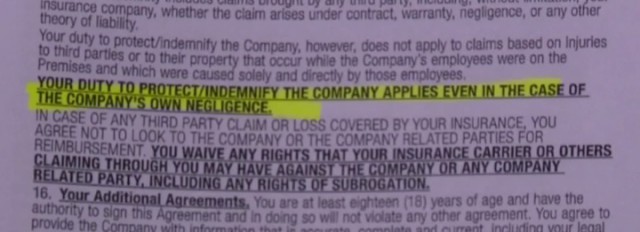
 Comcast’s customer relations team apparently is better at ferreting out contacts at their customers’ employers than fixing problems with their service, despite being given multiple chances to make things right. When one customer made a seventh attempt to resolve his problems, Comcast called his boss and got him fired.
Comcast’s customer relations team apparently is better at ferreting out contacts at their customers’ employers than fixing problems with their service, despite being given multiple chances to make things right. When one customer made a seventh attempt to resolve his problems, Comcast called his boss and got him fired.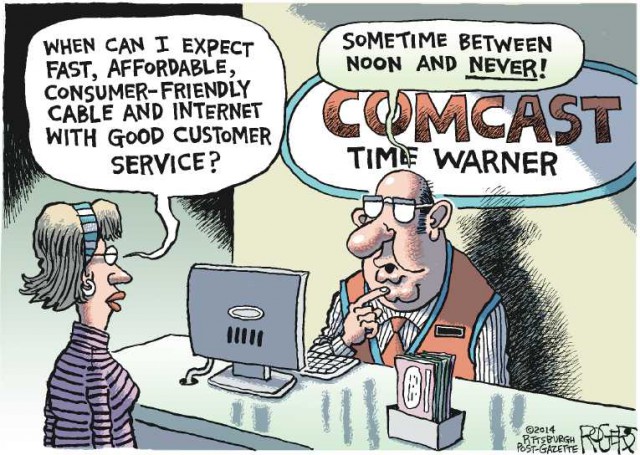 Not a chance.
Not a chance.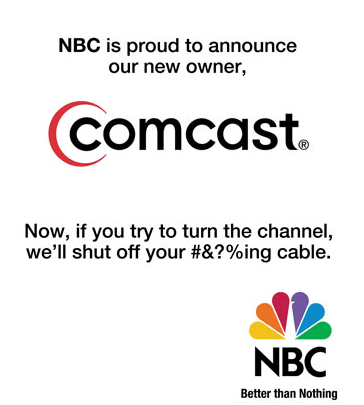 That Conal would raise the matter of the PCAOB to the Controller’s Office apparently piqued the interest of someone at Comcast, who launched a small research project to determine who Conal was and where he worked. When they discovered his employer did work for Comcast, the cable company struck gold in the leverage department.
That Conal would raise the matter of the PCAOB to the Controller’s Office apparently piqued the interest of someone at Comcast, who launched a small research project to determine who Conal was and where he worked. When they discovered his employer did work for Comcast, the cable company struck gold in the leverage department.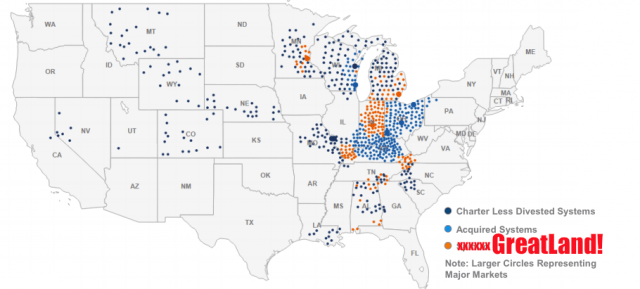
 With many customers having only one choice for High Speed Internet access above 15-25Mbps — the cable company — the arrival of GreatLand concerns many municipalities facing deadlines to approve a transfer of franchise agreements from Comcast to the new entity.
With many customers having only one choice for High Speed Internet access above 15-25Mbps — the cable company — the arrival of GreatLand concerns many municipalities facing deadlines to approve a transfer of franchise agreements from Comcast to the new entity.
